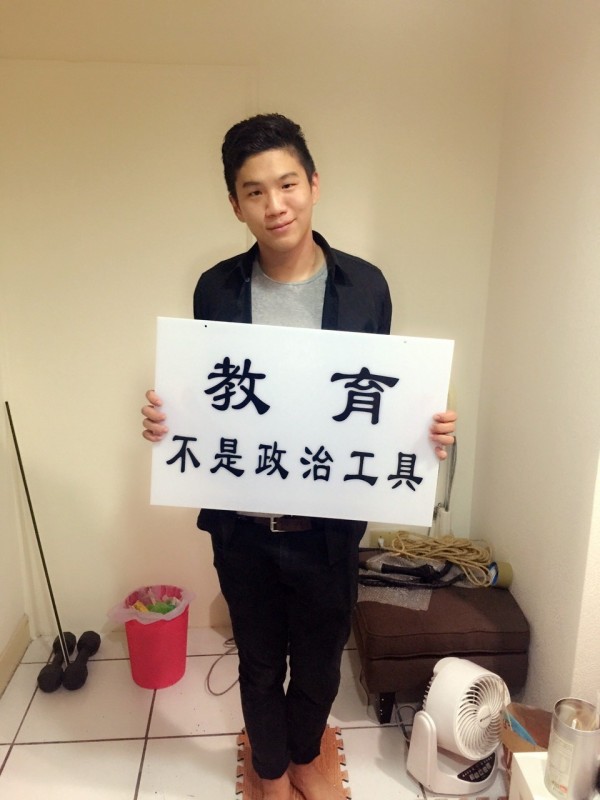Daily Bloom is the shortform blog of New Bloom, covering breaking news events as they occur in real-time.
Student activist Lin Guanhua committed suicide through carbon monoxide this morning in New Taipei City through burning charcoal. Lin would have been twenty today. Lin had been involved in the anti-textbook revision campaign and was among those who had taken part in the action to storm and attempt to occupy the Ministry of Education that took place on July 23rd, roughly one week ago. Lin had been among those who entered the building, attempted to occupy the office of the Minister of Education, and were later arrested. Thirty-three individuals were arrested that night, including 3 journalists, 6 members of the public, and 24 students.
According to United Daily News, Lin was apparently the first to be arrested that night. Lin on social media would stress that students had not broken anything in the office of the Minister of Education but that police brutality followed nonetheless. The causes of Lin’s suicide remain unclear, acquaintances stating that Lin had been speaking of not living past twenty since the end of June—today being his twentieth birthday—but family also stating that Lin’s mood had been very poor since his arrest. Reports have since emerged that Lin’s family had confronted him the previous night about his participation in the anti-textbook revision campaign. This may have been the direct cause of his suicide. Others, however, have suggested that the cause of Lin’s death was more generally because of relentless persecution by police and the pressure that brought.
 Lin Guanhua
Lin Guanhua
Where outrage has ensued, it has been that the cause of Lin’s suicide has been perceived to be frustration over his inability to resolve the textbook issue, in addition to pressure from the charges filed by the Ministry of Education against student occupiers and public criticism. As with previous occupation attempts of its type since last year’s Sunflower Movement, even as there was a strong public reaction against the police for using force against students or the Ministry of Education for filing charges against students, there was also public backlash against students themselves for breaking the law or disrupting public order. The discourse of public morality is, of course, prevalent in Taiwan. Just as cultural values concerning the young elevate students to a place of moral purity, allowing for them to occupy a privileged place in protest movements about social issues, such cultural values can also turn around and condemn students as hooligans out to cause trouble at the expense of public order and social harmony—and to be punished as threats to social order. Is Lin’s death, then, the outcome of this puritanical, condemnatory public discourse? That remains to be seen.
When reached for comment by the media, the Ministry of Education stated that they would publicly comment later in the afternoon. At least some KMT officials have reacted exactly the wrong way, however, attempting to square blame with the DPP for Lin’s suicide, as the KMT’s Lin Yihua did in public comments. If to date public reaction to the actions of students has been mixed, certainly the reactions of the Ministry of Education officials and KMT party members will be revealing of where they stand exactly concerning the young generation of Taiwanese that they are at such a remove from. If their responses fail to satisfy the public or, in fact, only serve to anger the public, we can expect strong reactions.
No doubt, as Lin’s death has provoked much outrage, the possibility of spontaneous protest breaking out tonight or tomorrow night seems very high. If the Taiwanese textbook controversy has been the struggle to date of Taiwan’s young against the KMT to determine what Taiwanese history means to them, the movement may now have it’s first martyr. Is now the time to transform grief into anger?
.
Author: Brian Hioe
Photo Credit: Lin Guanhua
Biography: Brian Hioe (丘琦欣) is an M.A. student at Columbia University, a freelance writer on politics and social activism, and an occasional translator. He is formerly a resident of Taipei, Taiwan.


